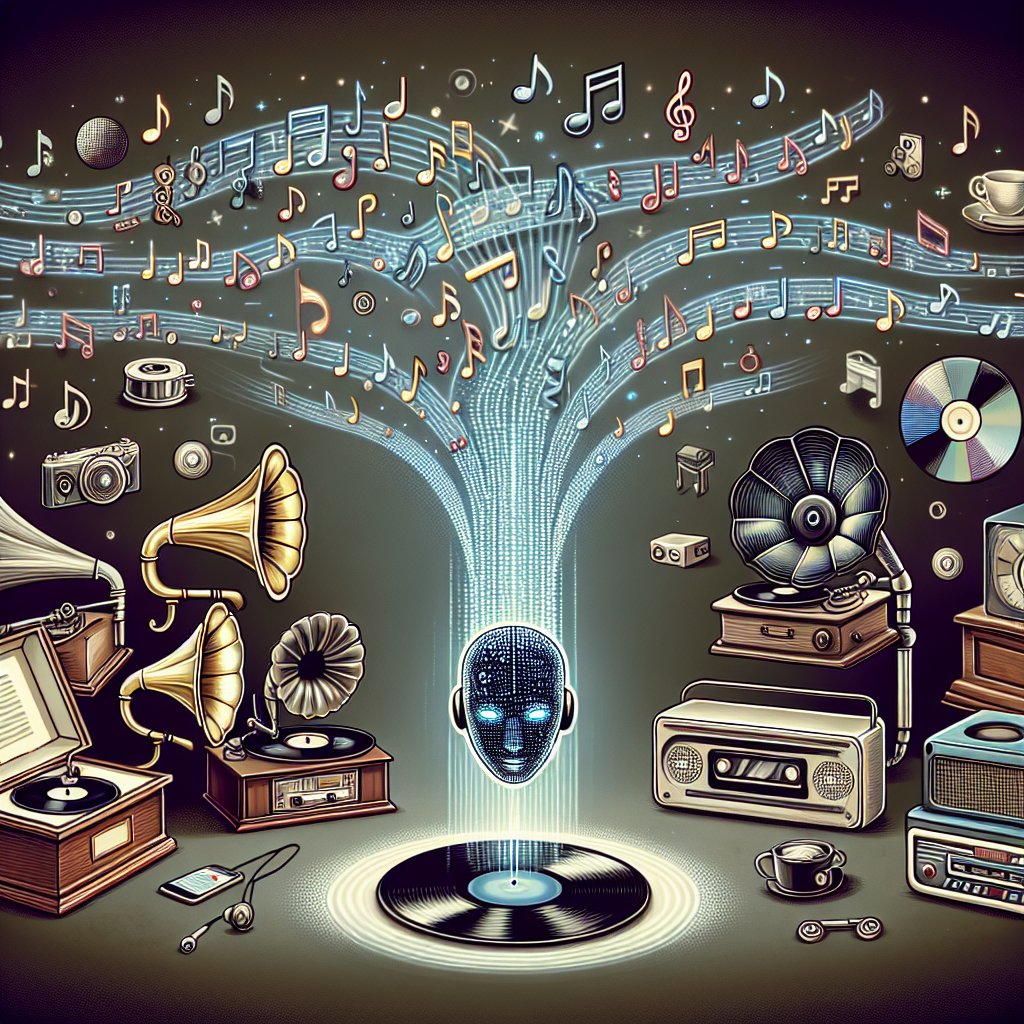AI and the Evolution of Music Consumption
In recent years, the music industry has undergone a significant transformation with the rise of artificial intelligence (AI) technology. AI has revolutionized the way we consume music, from personalized playlists to algorithm-driven recommendations. This technology has not only changed how we discover and listen to music but also how it is created and distributed. In this article, we will explore the impact of AI on the evolution of music consumption and its implications for the future of the industry.
The Rise of AI in Music
AI technology has been integrated into various aspects of the music industry, from music creation to distribution and marketing. One of the most significant developments in this regard is the use of AI algorithms to analyze and predict music trends, allowing record labels and artists to identify popular genres and styles. This has enabled them to tailor their music to meet the preferences of their target audience, ultimately increasing their chances of success.
AI has also been used to create music itself, with algorithms generating melodies, harmonies, and even lyrics. This has sparked a debate among musicians and music enthusiasts about the role of AI in the creative process. While some argue that AI-generated music lacks the emotional depth and authenticity of human expression, others see it as a tool that can enhance creativity and productivity.
AI-powered music recommendation systems have also become a ubiquitous feature of streaming platforms such as Spotify and Apple Music. These systems analyze users’ listening habits and preferences to create personalized playlists and recommendations, ensuring that they are constantly discovering new music that aligns with their tastes. This has transformed the way we consume music, making it easier than ever to discover new artists and genres.
The Impact of AI on Music Consumption
The integration of AI technology into the music industry has had a profound impact on how we consume music. One of the most significant changes is the shift towards personalized music experiences. AI algorithms analyze users’ listening habits, preferences, and even mood to create customized playlists that cater to their individual tastes. This has made it easier for listeners to discover new music that resonates with them, leading to increased engagement and satisfaction.
AI-powered recommendation systems have also played a crucial role in breaking down barriers to entry for emerging artists. By analyzing users’ listening habits and suggesting new music, these systems have enabled lesser-known artists to reach a wider audience and gain recognition. This has democratized the music industry, allowing independent artists to compete with established acts on a more level playing field.
Furthermore, AI has facilitated the creation of music that is tailored to specific audiences. By analyzing data on music trends and consumer preferences, record labels and artists can create music that is more likely to resonate with their target audience. This has led to the emergence of niche genres and subcultures, as artists are able to cater to the diverse tastes of their fans.
The Future of Music Consumption
As AI technology continues to advance, the future of music consumption is likely to be even more personalized and immersive. AI algorithms will become increasingly sophisticated, providing users with more accurate and relevant music recommendations. This will not only enhance the listening experience but also empower artists to connect with their fans on a deeper level.
AI-powered music creation tools will also become more prevalent, enabling artists to experiment with new sounds and styles. This will lead to the emergence of innovative genres and musical landscapes that push the boundaries of creativity. AI-generated music may even become a mainstream genre in its own right, blurring the lines between human and machine creativity.
However, the rise of AI in music consumption also raises concerns about privacy and data security. As AI algorithms analyze users’ listening habits and preferences, there is a potential for misuse of this data by third parties. It is essential for companies to prioritize user privacy and transparency to ensure that AI technology is used ethically and responsibly.
FAQs
Q: How does AI technology analyze users’ listening habits and preferences?
A: AI algorithms collect data on users’ listening history, including the artists, genres, and songs they have listened to. They analyze this data to identify patterns and trends, allowing them to create personalized playlists and recommendations.
Q: Can AI-generated music be as emotionally expressive as music created by humans?
A: While AI-generated music may lack the emotional depth and authenticity of human expression, it can still be emotionally expressive in its own right. Some argue that AI can enhance creativity and productivity by providing artists with new tools and perspectives.
Q: How can independent artists benefit from AI-powered recommendation systems?
A: AI-powered recommendation systems can help independent artists reach a wider audience and gain recognition by suggesting their music to users who may not have discovered them otherwise. This can increase their visibility and attract new fans.
Q: How can companies ensure user privacy and data security in AI-powered music consumption?
A: Companies should prioritize user privacy and transparency by implementing robust data protection measures and obtaining user consent before collecting and analyzing their data. It is essential to comply with data protection regulations and ethical guidelines to ensure that AI technology is used responsibly.
In conclusion, AI technology has revolutionized the music industry, transforming how we consume, create, and distribute music. The rise of AI-powered recommendation systems and music creation tools has led to more personalized and immersive music experiences, empowering artists and listeners alike. As AI technology continues to advance, the future of music consumption is likely to be even more dynamic and diverse, offering new opportunities for creativity and innovation. It is essential for companies to prioritize user privacy and data security to ensure that AI technology is used ethically and responsibly.

